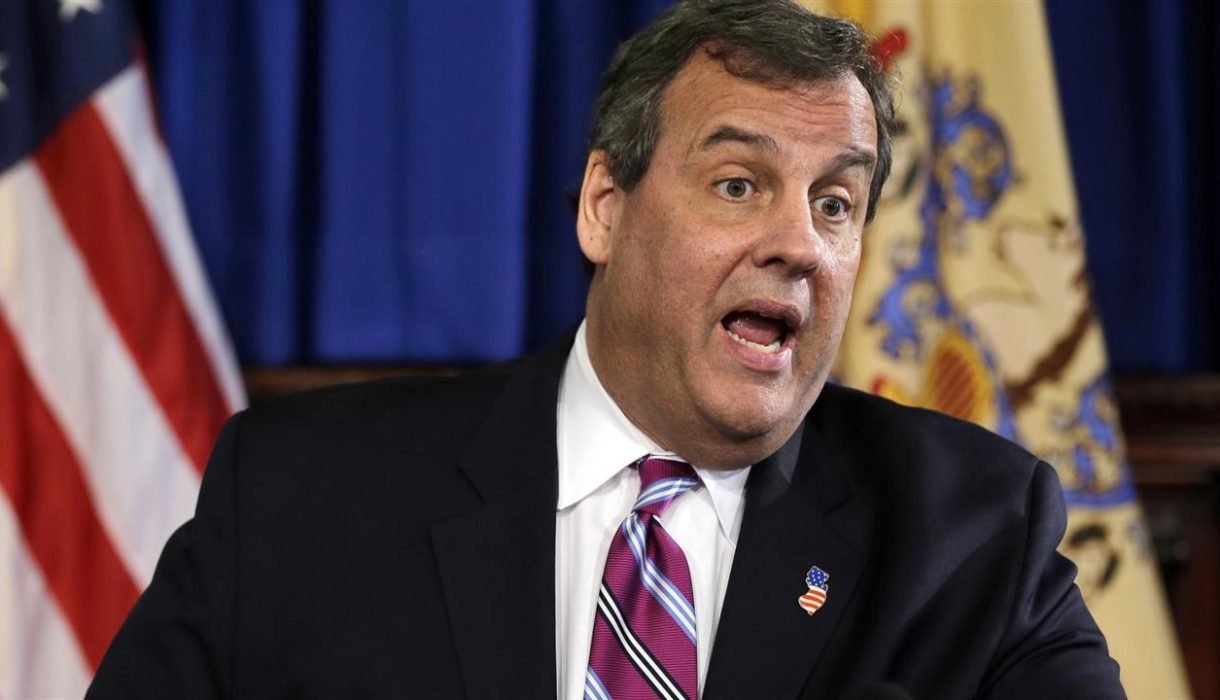
Christie Exposes Trump’s Advice: “Go Bankrupt” — Calls It “Stupid or Crooked”
Posted in :
Chris Christie revealed that Donald Trump once told him to fix New Jersey’s budget crisis by “just going bankrupt.” Trump’s advice to “let the courts sort it out” reflects his risky, debt-heavy mindset—one that Christie blasted as “stupid or crooked.” From casino bankruptcies to national debt, the episode exposes how Trump’s financial style treats public money like Monopoly chips.
Chris Christie recently made headlines by revealing a provocative piece of advice he once received from Donald Trump: to declare bankruptcy as governor of New Jersey—an idea Christie called ‘stupid or crooked.’ This blog delves into Christie’s candid interview, his pointed criticisms of Trump’s financial acumen, and what all this tells us about American political leadership today.
Sometimes politics feels like a bizarre family reunion—everyone knows too much, and nobody really trusts each other. I still remember the first time I heard Chris Christie speak at a small, creaking community center in New Jersey—he had this blunt style that made you both uncomfortable and oddly reassured. That’s why, when Christie publicly recalled Trump’s stunning suggestion to ‘just go bankrupt’ as a solution to New Jersey’s budget mess, it didn’t shock me… but it did make me laugh out loud. Let’s pull back the curtain on this strange episode and what it says about the tangled money-politics game in America.
Story Time: A Governor, a Phone Call, and a Wild Fix
Let me set the scene: It’s 2010, and I’m sitting in the governor’s office in New Jersey, staring down a budget crisis that feels like it could swallow the whole state. The phone rings. On the other end? Donald Trump. Yes, that Donald Trump—the guy with his name on half the buildings in Atlantic City, the self-proclaimed “King of Debt.” I’m thinking, “What could he possibly want?” Turns out, he’s got advice. And not just any advice—he’s got a fix for my budget nightmare.
Trump doesn’t waste time with pleasantries. He jumps right in:
“I got the way to fix this for you.”
I’m curious, so I ask, “Okay, Donald, what do you got?” His answer?
“Go bankrupt.”
I actually laughed. “I’m a state, I can’t go bankrupt,” I tell him. But he’s not done. He shoots back,
“Screw it, do it anyway. They’ll take you to court, you’ll ultimately lose in a couple of years, and by that time the problem will probably fix itself.”
I mean, what do you even say to that? Trump’s approach to money—especially other people’s money—has always been, let’s say, creative. He’s proud of his bankruptcies. He called himself the “King of Debt” and bragged about sticking it to creditors. “He said it made him smart,” I told Chris Matthews in a recent interview. But here’s the thing: running a business and running a state are not the same game. When a casino goes bust, creditors lose. When a state goes bust, it’s the people who pay the price.
I can’t help but wonder—what happens when someone with a private-sector mindset tries to run public finances? Trump’s advice to me was basically, “Just default, let the courts sort it out, and maybe the mess will clean itself up.” That might work if you’re juggling casino chips, but with schools, roads, and pensions on the line? That’s a whole different level of risk.
Honestly, it’s a bit like using a credit card to pay your rent. You know it’s not sustainable, but you do it anyway, hoping something will magically fix itself before the bill comes due. Now, imagine doing that with an entire state budget. That’s the kind of “solution” Trump was pitching. And it’s not just about numbers on a spreadsheet—it’s about real people, real services, and real consequences.
Looking back, I realize Trump’s advice was either “pretty stupid or pretty crooked,” as I put it. “You gotta be pretty stupid or pretty crooked to go bankrupt running a casino,” I said, and I stand by that. The lesson? Sometimes, the wildest fixes are the ones you should run from fastest—especially when the stakes are this high.
Casino Lessons: What Bankruptcy Means When the House Always Wins… Or Does It?
Let’s be real—casinos are supposed to be the ultimate “can’t lose” business. The house always wins, right? Well, unless you’re Donald Trump in Atlantic City. Chris Christie, who knows a thing or two about New Jersey’s casino scene, didn’t mince words about Trump’s record: “Look, this is the guy who had his casinos go bankrupt three times.” That’s Trump Taj Mahal, Trump Plaza, and Trump Castle—each one a monument to the idea that maybe, just maybe, the house doesn’t always win if the dealer’s asleep at the wheel.
Christie’s jab was classic Jersey bluntness: “You gotta be pretty stupid or pretty crooked to go bankrupt running a casino.” I mean, think about it. The odds are literally stacked in your favor. People come in, drop their money, and the lights keep flashing. Yet, Trump somehow managed to lose big—repeatedly. It’s almost like watching someone burn toast three times in a row and still call themselves a chef.
But here’s where the story gets even wilder. Christie shared a personal story from his days as governor, facing a massive budget crisis. Trump, ever the “King of Debt,” called him up with some advice. According to Christie, Trump said, “Go bankrupt.” When Christie pointed out, “I’m a state, I can’t go bankrupt,” Trump just shrugged it off: “Screw it, do it anyway. They’ll take you to court, you’ll ultimately lose in a couple of years, and by that time the problem will probably fix itself.”
It’s almost like imagining Las Vegas running out of chips and just handing out IOUs at the blackjack tables. “Don’t worry, we’ll settle up later!” It sounds absurd, but that’s the kind of thinking Christie says Trump brought to both business and politics. Spend, spend, spend—especially if it’s someone else’s money on the line. Christie summed it up: “The thing he does best is spend other people’s money. And we now have put him in charge of spending ours.”
This “King of Debt” mindset isn’t just a business quirk—it’s a whole philosophy. Trump used to brag about stiffing creditors and walking away from deals that went south. He was “gleeful about it,” Christie recalled, and even claimed it made him smart. But when you apply that logic to public office, the stakes are a lot higher than a few busted slot machines. Research shows that Trump’s approach to debt and spending has had real consequences, with the Congressional Budget Office estimating his “big, beautiful bill” would add $3.3 trillion to the national debt over the next decade.
So, what do we learn from the guy who managed to lose at the one game where the odds are always in your favor? Maybe the house doesn’t always win—especially if the boss is playing with Monopoly money and hoping nobody notices when the chips run out.
Down-Ballot Dissent: Why Christie Left the Presidential Line Blank
I never thought I’d see the day when Chris Christie—a guy who’s been a Republican loyalist for decades, a former governor, and even Trump’s transition team chair—would just leave the presidential line blank. But that’s exactly what happened in 2024. Christie admitted, “It was the first time in my life that I haven’t voted for president.” He still voted down ballot, but when it came to the top job, he just couldn’t bring himself to pick either Trump or Kamala Harris. That’s not just a quiet protest; that’s a full-on siren.
So, what actually drives someone like Christie, who’s been in the trenches for the GOP and even stood shoulder-to-shoulder with Trump, to walk away from both major candidates? It’s not just about policy differences or a grudge. It’s about trust, integrity, and, honestly, a sense of exasperation with the choices on offer. Christie’s recent interview with Chris Matthews really pulled back the curtain. He didn’t mince words about Trump’s financial advice or his approach to leadership.
Christie shared a story that still sounds wild, even after hearing it a few times. Back when he was governor, facing a massive budget crisis, Trump called him up with a “solution.” Christie recalled,
“Trump called me one day, and said, ‘I got the way to fix this for you.’ And I said, ‘Okay, Donald, what do you got?’ And he goes, he said, ‘Go bankrupt.’ And I said, ‘I’m a state, I can’t go bankrupt.’ He goes, ‘Screw it, do it anyway.’ He said, ‘they’ll take you to court, you’ll ultimately lose in a couple of years, and by that time the problem will probably fix itself.’”
Let that sink in. The advice from a former president was basically: break the system, let the courts sort it out, and hope it all magically works out. Christie’s reaction? He called it “pretty stupid or pretty crooked.” And when you look at Trump’s track record—three casino bankruptcies in Atlantic City, gleeful boasts about being the “King of Debt”—it’s not hard to see why Christie’s faith in the party’s standard-bearer has evaporated.
Sometimes, sitting out is louder than voting with your nose pinched shut. Christie’s move wasn’t just about personal distaste; it was a statement about what he sees as a broken system. He’s not alone, either. More and more voters are finding themselves in the same boat—unwilling to endorse candidates they simply can’t trust, even if it means leaving the most important line on the ballot blank.
And honestly, can you blame him? Imagine if politicians actually tried to solve the national debt using Monopoly rules. “Just print more money, pass Go, collect $200, and if things get rough, flip the board and walk away.” It’s absurd, but sometimes the real world feels just as surreal. Christie’s dissent is a reminder that sometimes, the loudest statement you can make is the one you don’t make at all.
Wild Card: Trump’s ‘Big, Beautiful Bill’ and Spending Someone Else’s Money
Let’s be honest—when Chris Christie starts talking about Donald Trump and money, you can practically hear the Atlantic City slot machines ringing in the background. Christie doesn’t mince words. He’s called Trump out as a spender, plain and simple. “The thing he does best is spend other people’s money,” Christie told Chris Matthews, and honestly, it’s hard not to see his point when you look at the numbers.
The Congressional Budget Office (CBO) predicts that Trump’s so-called “big, beautiful bill”—his domestic policy plan—would add a staggering $3.3 trillion to the national debt by 2034. That’s not just a big bill; it’s a monster tab, and guess who’s footing it? Yep, us. The American taxpayers. Sometimes I wonder, if we all got a punch card every time a trillion dollars got tacked onto the debt, would we at least get a free sandwich? Or maybe a commemorative mug: “I survived another trillion in national debt.” It’s a joke, but it’s also not. Because this isn’t Monopoly money, it’s our future.
Christie’s stories about Trump’s financial advice are almost too wild to believe. Picture this: Christie, as governor, facing a massive budget crisis, gets a call from Trump. Trump’s advice? “Go bankrupt.” Christie pushes back, “I’m a state, I can’t go bankrupt.” Trump just shrugs it off: “Screw it, do it anyway. They’ll take you to court, you’ll ultimately lose in a couple of years, and by that time the problem will probably fix itself.” That’s not exactly the kind of fiscal responsibility you want from someone holding the nation’s checkbook.
And let’s not forget Trump’s own track record. Christie reminds us, “This is the guy who had his casinos go bankrupt three times.” Running a casino into the ground isn’t easy—those places are practically designed to make money. Christie’s take? “You gotta be pretty stupid or pretty crooked to go bankrupt running a casino.” Ouch.
But here’s the bigger question that keeps nagging at me: Do the habits and tricks that work in the business world—especially Trump’s brand of business—translate to running a country? Trump used to brag about being the “King of Debt,” saying it made him smart to stick it to creditors. But when you’re president, the creditors are us. The taxpayers. The people who can’t just walk away from the bill.
So, what’s the takeaway here? Christie’s warnings aren’t just about Trump—they’re about what happens when leaders treat public money like casino chips. Maybe it’s time we ask ourselves: Do we want a high-roller in charge of the national budget, or someone who actually respects the stakes? Because at the end of the day, the “big, beautiful bill” isn’t just Trump’s legacy—it’s ours to pay.
TL;DR: Christie’s revelation about Trump’s ‘bankruptcy fix’ isn’t just a political jab—it exposes a deeper pattern in American leadership: risky advice, blurred ethics, and financial gamesmanship seem to repeat. Whether you cheer or cringe, it’s proof that behind closed doors, the wildest ideas sometimes get a seat at the table.
ChrisChristieTrumpInterview, TrumpPresidency, TrumpBankruptcyHistory, TrumpCasinosBankruptcy, ChrisChristieCritic, NationalDebtIncrease, TrumpFinancialStewardship, KingOfDebt, ChrisChristieVotingDecision, TrumpDomesticPolicy,ChrisChristieTrumpstory, Trumpbudgetcrisisresponse, TrumpKingofDebt, Trumpnationaldebtlegacy
#ChrisChristie, #TrumpPresidency, #WhiteCollarCrime, #USPolitics, #MAGA, #TrumpInterview, #FinancialStewardship, #NationalDebt, #PresidentialTransition,#TrumpBankruptcy, #ChrisChristie, #KingOfDebt, #BudgetCrisis, #CasinoFailures, #NationalDebt, #TrumpAdvice, #GOPLeadership, #FiscalIrresponsibility, #AmericanPolitics

